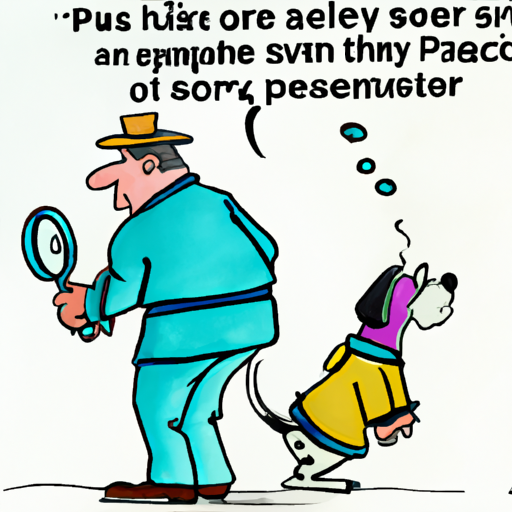“`markdown
Why Do My Dog’s Anal Glands Smell?
What Are Anal Glands and Why Do They Smell?
Anal glands, also known as anal sacs, are small glands located on either side of your dog’s anus. These glands secrete a distinct, often pungent, fluid that dogs use to mark their territory. The smell is often compared to rotten fish or decaying material. It’s not typically noticeable unless there’s an issue with the glands.
The Reasons Behind the Smell
There could be several reasons why your dog’s anal glands smell:
-
Impaction: This occurs when the glands are not emptying properly, causing a buildup of secretions. This can lead to discomfort and a stronger smell.
-
Infection: If bacteria get into the anal glands, they can cause an infection, leading to a foul smell.
-
Abscess: An abscess occurs when an infection causes a pocket of pus. This can result in a very strong smell and needs immediate veterinary attention.
Preventing Anal Gland Problems
Preventing anal gland issues and the associated smell can be done through several methods:
- Regular grooming
- A healthy diet
- Regular exercise
| Prevention Method | How It Helps |
|---|---|
| Regular Grooming | Keeps the area clean, reducing the risk of infection |
| Healthy Diet | Can help firm up stools, which can naturally express the glands |
| Regular Exercise | Helps maintain overall health and regular bowel movements |
When to Seek Veterinary Assistance
If you notice persistent smell, swelling, your dog scooting on the floor, or licking the area excessively, it’s time to seek veterinary assistance. These are signs of potential impaction, infection, or abscess.
Home Remedies for Anal Gland Smell
While it’s always best to consult a vet, there are a few things you can try at home to reduce the smell:
- Warm compresses
- Dog-safe wipes
- Adding fiber to your dog’s diet
Remember, these are not solutions for serious issues like impaction, infection or abscess.
Frequently Asked Questions (FAQs)
Q: How often should anal glands be emptied?
A: Most dogs naturally empty their anal glands when they defecate. However, some dogs may need them manually expressed by a vet or groomer.
Q: Can I express my dog’s anal glands at home?
A: While it’s technically possible, it’s not recommended unless a vet has shown you the proper technique.
Q: How can I tell if my dog’s anal glands are infected?
A: Signs include a strong smell, redness, swelling, and your dog scooting or licking the area excessively.
Q: What will a vet do for infected anal glands?
A: Treatment may include antibiotics, draining the glands, or in severe cases, surgical removal of the glands.
“`



